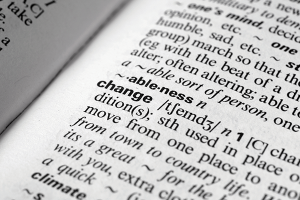Saying the Right Thing, Even in Private

(Note: contains ethnic and ableist slurs)
IT CAN BE A TRICKY BALANCE to say the right thing. There are things I say in private, perhaps in bursts of anger or when I’m thinking out loud to clarify ideas, that I wouldn’t say in public. I might crack snarky jokes or mine morbid humor with people I’ve known for years. This is important. I don’t want to speak with my wife, or my closest friends, with the same degree of caution I use when I’m giving a talk at a conference. When you trust people and have a long shared history with them, you can relax with them, and you don’t have to choose your words so carefully. You can trust that they’ll filter what you say through their years of detailed knowledge about you, and that you won’t have to pick your language like a lawyer writing a contract for them to hear what you mean. And you can do the same for them. That’s part of what it means to be close with people, and I wouldn’t want it any other way.
But.
As I discussed in this column last fall (“Starting with the Assumption that I’m Wrong,” S/O 2015), I’ve been working to rid my vocabulary of slurs. I’m not talking about the obvious slurs everyone’s familiar with, the ones that are only used with the intent to express hatred and contempt. Of course I don’t use those. I’m talking about the ones that are part of everyday language, the ones that many people use without even knowing their history. When I learned that “paddy wagon” and “gyp” were ethnic slurs, when I heard that the word “thug” is most commonly aimed at black people and is seen by many of them as a slur, when I found out that words like “stupid” and “idiot” are seen as slurs by people who are mentally or developmentally disabled—I started working to unlearn them. My general principle is that marginalized people know more about their own marginalization than I do: if Irish-Americans, Romani people, African-Americans, and people with mental disabilities say that a particular word is a harmful slur, I have no reason to disbelieve them and every reason to stop using the word.
For a long time, though, I didn’t understand why it was important to expunge these words in private. My wife and my friends knew what I meant, after all. They knew that when I said “paddy wagon,” I meant a police van, not a vehicle for transporting criminals who are presumed to be Irish-American. They knew that when I said “idiot,” I meant a person who isn’t very good at thinking, not someone with mental disabilities. I trusted them to filter my words through our shared history and hear what I actually meant.
 And then I was out to dinner with friends who care about such ableist language, and we were talking and laughing and snarking about people with terrible ideas, and the word “stupid” slipped out.
And then I was out to dinner with friends who care about such ableist language, and we were talking and laughing and snarking about people with terrible ideas, and the word “stupid” slipped out.
And I realized why I should quit using these words, even in private.
Language is habitual. Most of the time when we speak, we don’t think consciously and carefully about what exactly we’re going to say. We’ve all had slips of the tongue; we’ve all blurted out something and two seconds later wished we could take it back. We can choose our words carefully, but most of the time we don’t. I don’t think we could function if we did.
But every time I use one of these slurs privately, I’m deepening the groove in my brain that jumps to these words—and I’m increasing the chance that one of them will slip out. I want to re-work that groove. When the unconscious machinery of my brain is searching for a word to mean “nonsensical” or “poorly thought out” or “not very smart,” I want it to grab “ridiculous” or “foolish.” I’m making this conscious effort so that when I am letting my guard down, when I am feeling relaxed and casual with trusted friends, the slurs aren’t the words that slip out. And stopping for a moment to remember that a word is hurtful doesn’t just train me to use different language. It trains me to care.
Finally, I want to work on ridding my vocabulary of these words because, now that I know what they mean, I don’t want to use them.
I don’t want to use any slurs. I don’t want to use words that express hatred or contempt for an entire class of people. Even in the privacy of my own head, when I’m talking to nobody but myself, I don’t want to use them. I don’t want to use the ones that I knew were hateful the minute I learned them—and I don’t want to use the ones that I thought for years were just innocent words for “swindle” or “violent thief.” I’ll cut myself some slack for having used them when I didn’t know what they meant, but as soon as I learned, I lost that excuse. They became slurs in my head the second I learned their origin—and I don’t want to use slurs. I hope I don’t have to explain why. It’s often said by social justice advocates that intention is not magic. Intention isn’t trivial, of course—it’s worse to hurt someone maliciously than carelessly—but if someone steps on your foot, knowing they didn’t do it on purpose doesn’t magically make the pain go away. And if we cause someone pain, and our reaction is to get defensive and hostile rather than to apologize and try to do better, that’s not a sign of good intentions. Good intentions means not wanting to hurt people, and that means listening when people say we’ve hurt them and trying not to do it again. So, if my words are hurting people, I have a responsibility to root them out of my thesaurus, and to find alternatives.
Even in private.
